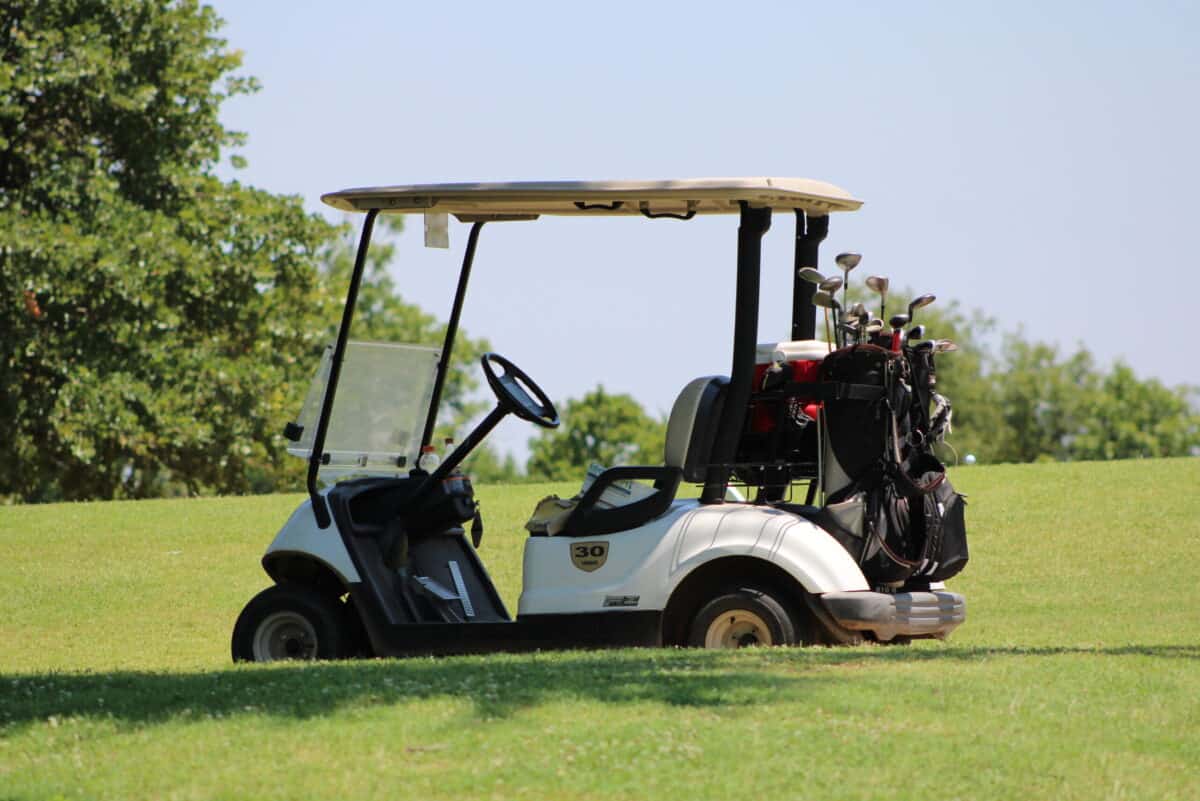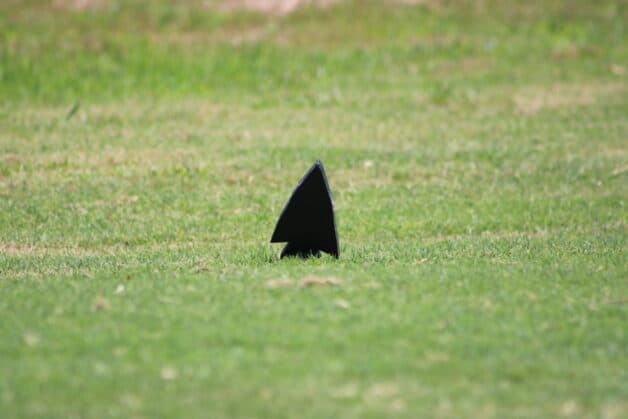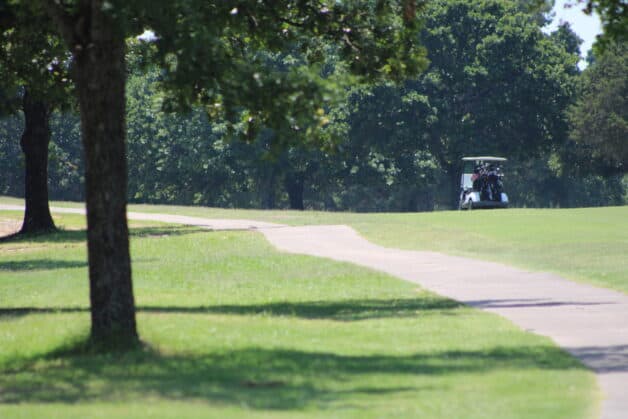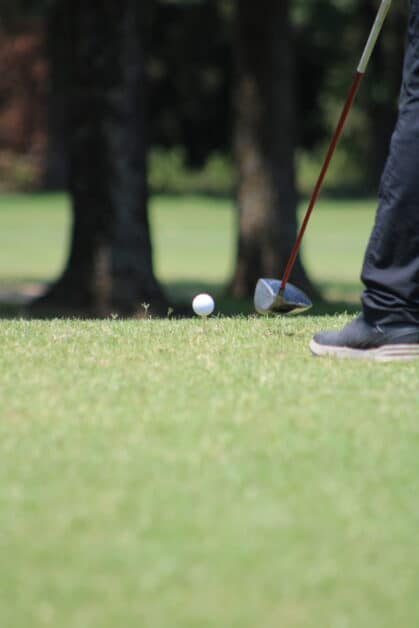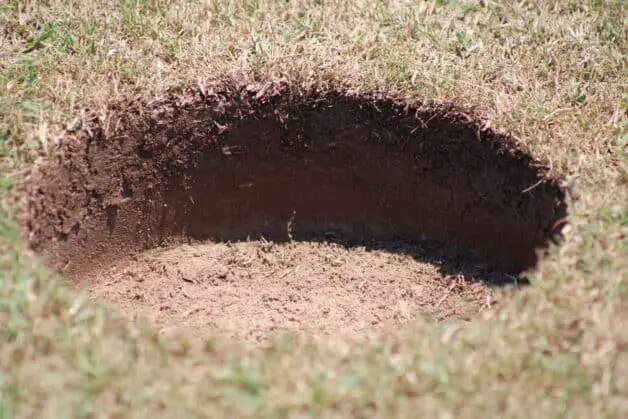The Golf rangefinder has been around for several years now, and thanks to improvements in technology, they have become a standard feature in many golf bags around the world and are allowed in three PGA events in 2021.
How Accurate Are Golf Rangefinders?
The golf rangefinder isvery accurate, with some manufacturers claiming an accuracy level to ½ yard or even 1/10 yard! These levels of accuracy are achieved with the quality of the device’s optics and the algorithms used to calculate the distances.
Now, let’s take a better look at these devices , how they work and how they can consistently deliver incredible levels of accuracy to the golfer. We’ll also look at why these devices are more accurate than GPS systems.
What Are The Types Of Golf Rangefinders
There are four different types of golf rangefinders, and they are all used to provide the golfer with the distance measurement to their intended target on the golf course. That can be the distance to the flag with or without slope calculation or to other locations like the back of the green.
The four types are :
• GPS rangefinders that use satellites to pinpoint your location and give distance measurements
• Laser rangefinders that utilize lasers to provide accurate distances
• Optical rangefinders that use lenses to zoom in on targets to provide distance measurements
• Hybrid rangefinders use both GPS and laser to provide distance
How Do Golf Rangefinders Work On The Golf Course
The two most popular rangefinder systems in the golf rangefinder market are the GPS and Laser rangefinder, while the optical systems have mostly fallen out of favor as they are the least accurate of the three.
The GPS Rangefinder
The GPS rangefinders come in various options, from GPS golf watches to the smaller devices that clip onto your hat and even built-in golf carts rented from the club, but they all use the same technology as the SATNAV in your car or on your phone.
The GPS devices uses a system of low-orbit satellites ( about 32 of them) to triangulate your position on the course. The course data loaded to the system can give you distances to the green’s front, back, and middle locations.
Some GPS systems have more advanced features like gauge wind conditions and slope technology readings, and green undulations, but under rule 4.3 of golf, the use of these features is not permitted on the golf course.
How Accurate Are GPS Rangefinders
With optimal atmospheric conditions such as clear skies, the golf GPS chipsets are generally accurate to average between 3 and 4 yards. Better quality systems specifically designed for golf courses would be better than using your phone’s GPS apps.
GPS systems can’t give you exact yardages. They can’t adjust for elevation changes with slope measurement capabilities for downhill shots or uphill shots, leading to a discrepancy of around 6-8yards in the distance to a target.
For the more experienced or low handicap players, this is a critical element in club selection, shot type, and whether it’s a full, three-quarter, or half swing on the shot, so they need greater accuracy.
Disadvantages Of Golf GPS Systems
However, suppose you have cloudy or overcast conditions or other interference. In that case, your GPS’s accuracy may fluctuate, plus these systems work purely in a straight line and don’t generally cater for elevation and slope readings without slope compensation technology.
Another drawback of these gps devices is they are dependent on which course data is loaded to the device, and you may find yourself having to download additional course maps at a cost before you play.
The GPS device units also need to be charged between rounds, and if you forget, you may find yourself playing golf the old-fashioned way, using course markers and your judgment.
The Laser Rangefinder
This handheld device uses a highly accurate laser beam to bounce light off a reflective surface on the intended target, reflecting the unit in real-time. The time taken for the light to reflect is used to calculate the distance to the target.
This simpler system means that laser rangefinders are the most accurate of all the systems and can deliver yardages within pinpoint accuracy down to ½ or even 1/10th of a yard.
The best golf laser rangefinders are hard to beat for the players that need extremely accurate distance as it’s a point-and-shoot solution and is not dependent on weather conditions or any other external factor to be consistently accurate.
These units can give you the distance to any point, including water hazards, bunkers, and OB markers, and this is a great advantage over GPS as that data may not be loaded to the GPS database.
By simply aiming the unit at the target, the laser beam will get a distance to the target in either yards or meters, and you don’t need to have course data downloaded as the laser rangefinder doesn’t need that to work.
These laser rangefinders are durable and don’t require charging as most of them have great battery life. With many companies even offering free lifetime battery replacement programs.
Many of the best golf rangefinders and even better quality older ones can adjust for elevation readings, which gives them a definite edge over their GPS unit counterparts like gps watches.
Disadvantages Of Golf Laser Rangefinder
These systems have very few drawbacks, but one of them is that you need to have a line of sight for them to give you accurate measurements. On courses that have hills and dales, you may find yourself having to climb a little to get a line of sight.
Another consideration is that you require some level of reflective material on your target, so the flag or flagstick on the green is fine, but aiming at bunkers may require you to aim at the rake or something similar to get the signal to bounce back.
Hybrid Rangefinders
These are relatively new and combine the best of both worlds and use GPS and laser sighting to deliver accurate distance data. With the accuracy of the laser and the convenience of course mapping, the hybrid could be set to dominate the rangefinder world in golf.
Should I Get A Golf Rangefinder
In the golf community, having excellent course management can make a huge difference in lowering your scores. To achieve that course management skill you will need correct yardage to various parts of the course, especially during competitive play.
Hitting your golf ball to a location that gives you the best angle to the flag. Or avoiding a hazard by seeing how far it is will be very helpful the next time you play golf and improve your golf game.
Conclusion
Using either GPS or laser rangefinders has enough accuracy on the distance for the average player to be effective in play. And can be found for low costs like the best cheap golf rangefinder with slope detection. Before you take it into a competition, you need to check if the local rules allow or prohibit them.
When it comes to accuracy, however, the laser rangefinder is superior. This is why many of the pros will use them in practice as they give the most accurate distance feedback and the variance between a yard and five yards makes all the difference.
So yes, if you are an avid golfer, you need a rangefinder. And when deciding what style to get, it comes down to personal preferences. Golf watch? Range finder? Golf GPS? All great options, you get to pick!
- Should Tee Boxes Be Level? - January 23, 2024
- 3 Hybrid Distance - November 15, 2023
- Innovations in Golf Mobility: An In-depth Review of Top Golf Scooters - October 12, 2023
